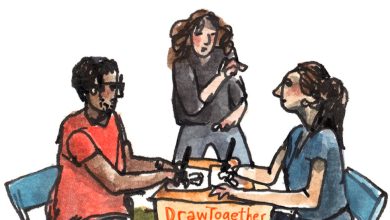In Big City Politics, a Call to Fund the Police

This past November, Bruce Harrell, a longtime local politician, won the Seattle mayoral election. During his campaign, Harrell, who’s Black and whom Fox News called a “pro-police candidate,” called out his opponent for supporting defund efforts. A week after winning, Harrell opposed a proposed $10 million cut to the police budget, saying, “The voters of Seattle resoundingly and unambiguously rejected defunding the police.”
Since Harrell’s victory, I’ve been wondering if progressive, pro-police candidates of color may be the future of the Democratic Party, especially in liberal cities. Regardless of how you feel about the veracity of the national violent crime wave, there’s no doubt that a lot of people living in cities around the country believe that we’re living in a somewhat lawless era. And it’s not just a so-called silent majority of white homeowners who feel this way.
In New York City, Mayor-elect Eric Adams’s pro-police primary campaign found its strength in Black and immigrant areas of Upper Manhattan, the Bronx, central and southern Brooklyn and southern Queens. Adams’s victory has been endlessly dissected by the press, but it seems clear that his mix of identity politics and moderate, public safety messaging resonated with minority voters throughout the five boroughs. For white, liberal voters who may have bought the narrative that their cities were falling into chaos, a minority candidate might have been an easier choice than, say, a white man screaming about law and order.
Harrell and Adams join London Breed of San Francisco, Lori Lightfoot of Chicago and Vi Lyles of Charlotte, N.C., on a list of Black mayors of major, liberal American cities who have very publicly resisted policy changes that would lead to a diminished police force. They may not have run on a pro-police platform, and they may have even made defund gestures last year, but each moved toward more funding for the police in 2021.
A pro-police shift may also be happening in Oakland, Calif., where Sheng Thao, a Hmong American member of the City Council, recently announced that she would run for mayor in the 2022 election. Oakland, like many cities across the country, has seen a spike in its homicide rate as well as a nationally publicized rash of smash-and-grab burglaries. The city also came into the spotlight during the Stop Asian Hate movement for a series of attacks this past year, one of which ended in the death of a 75-year-old man.
In September, Thao argued for the addition of two police academies. She also has proposed offering a signing bonus for any officer who joins the Oakland Police Department and commits to staying for at least five years. A self-described progressive, Thao not only wants to fund the police; she wants to give them an extra $50,000.
Outside of her views on policing, Thao’s pitch to Oakland isn’t all that different from those of other progressive candidates of color across the country: She says she understands the struggles of poor people because she lived through them herself. She is also for affordable housing, tenants’ rights and labor protections.
Thao is the seventh of 10 children born to Hmong refugees who eventually put down stakes in the working-class, agricultural city of Stockton, Calif. When she was in her early 20s, she was in an abusive relationship that she left when she was six months pregnant. After giving birth, Thao enrolled in a community college. She and her infant lived in a car and couch-surfed in the homes of those she befriended at school.
After graduation, she transferred to the University of California, Berkeley, where she began an internship at Oakland’s City Hall. There she quickly realized that the people in government had no real idea what working-class people like her wanted. “They were learning the way that we were living and how policies have impacted us through books,” Thao told me. “No one had the lived experience.”
I wanted to know more about why Thao was running and her strategies for the upcoming election, so I gave her a call. The following interview has been edited for length and clarity.
Mayoral elections in Boston, San Francisco and New York City have gotten national attention. Are there other mayors or people whose campaigns have been inspirations to you?
I really look to people like Michelle Wu, Boston’s new mayor. But currently, in the San Jose race, I look to Cindy Chavez and see that we are very similar in that we are pragmatic.
“Pragmatic” is a pretty loaded term. What areas do people need to be pragmatic about in Oakland?
Public safety. So here in the city of Oakland, I’ve been able to push forward and bring in more police academies to fill those positions that we already funded. We have 737 funded positions already, yet we only have 669 positions that are filled. And so I’ve been able to push policy forward that others would see as political suicide, bringing in a coalition of people to really say, “Kids deserve to be able to go to the park, feel safe and come back home. Our neighbors should be able to walk to the grocery store and come back home safely.” When I say “pragmatic,” it’s really about listening to the community and being able to recalibrate and not lose your values but really push for effective policies.
Is it really political suicide to increase the police force in Oakland?
No, not at all. Some people may think that. But we have to live in a reality where we are not politicizing the issue so that somehow prevention and police are not able to work together. We need both. We need the prevention. We need to get to the root causes of why we have people choosing to commit crimes. And then we also have to make sure that there is a response.
I want to go back to the reason I’m so passionate about this. In 2019, during my first year on the council, my home was broken into while I was chairing a Rules Committee meeting. That day, my 12-year-old son was home alone because he didn’t have school, and they broke into my home, burglarized my home, saw my son and kept going. This was traumatizing and is still traumatizing for my son. He will not stay home by himself to this day, and I don’t blame him — it’s traumatizing for me. And so having the response piece of it, making sure that we do have officers show up to also investigate these crimes, that’s incredibly important, too. We’re not working in a vacuum here. We need to understand that the prevention part goes hand in hand with the police response.
You’re an Asian candidate in Oakland, where there has been a very nationally publicized string of attacks on Asian people, which made Oakland and San Francisco a sort of ground zero for the Stop Asian American and Pacific Islander Hate movement. How has that affected your platform and your thoughts about public safety?
This anti-Asian sentiment has always existed. Now it’s come to the forefront because we are seeing a boldness that we haven’t seen before. It has affected how I lead in the sense that now other people outside of the Asian community are also seeing it. But I have seen it for myself, personally. I have been a victim of this, personally, throughout my whole life.
Are people within the Asian community telling you that they want more police?
They just want to feel safe, and that’s not just Asian communities. That’s the communities across the whole city, across the whole nation. They want to feel safe, where they can walk to go and purchase their vegetables for the day. They want to be able to walk their kids and feel safe.
I believe in having foot patrol officers, especially in a Chinatown corridor. I have fought for that over and over. In certain corridors, where we have such high foot traffic with our businesses, we must make sure that we have that presence, because the officers aren’t just patrolling. They’re building community.
This is a community of our elders who are monolingual. And we need to continue to have those conversations so they feel safe to come and report any crime, because a lot of times they are afraid themselves to report the crimes that are happening to them.
Do you think that people in Oakland want a candidate right now that takes public safety very seriously?
Absolutely. I’ve been fighting for many years for these foot patrols to be more visible in business corridors. And so it’s nothing new. I’ve just been the more quiet one. Now I’m just a little bit more loud. So people are shocked, because I vote progressive all the time. And I am progressive, but this has always been my tone.
The idea that somebody is running for mayor of Oakland and one of the first things out of the gate is “We’re going to give cops a $50,000 signing bonus” feels very different to me. How would you respond if somebody said you are a reactionary candidate who is trying to capitalize on a highly publicized crime wave?
I’m actually the progressive candidate running in this race. As a leader, you have all these competing circumstances. I think one of the best qualities in a leader is making sure that when there is a problem or a crisis, that you step up to the plate and you do what’s right and you do what’s needed for the community. And that’s exactly what we’re doing here.
Have feedback? Send a note to [email protected].
Jay Caspian Kang (@jaycaspiankang), a writer for Opinion and The New York Times Magazine, is the author of “The Loneliest Americans.”





